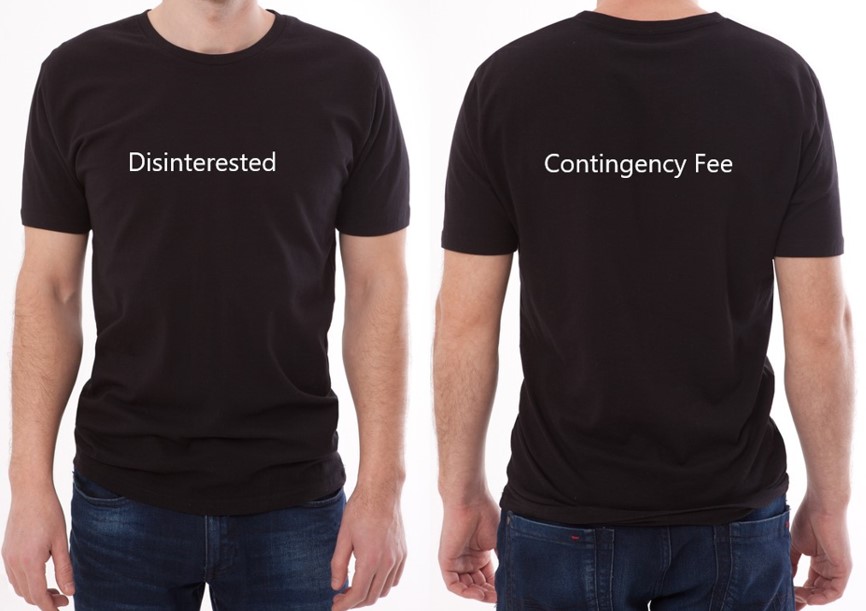Texas and Florida insurance companies wanting to preserve coverage disagreements and dispute appraisal awards have one thing in common–requests for itemized appraisal awards. Insurance policies have no provision for such itemizations. In construction practice, nobody accepts or places bids with the lowest line by line bid. Only the bottom line counts. Even in jury trials, the itemization of jury verdicts is far shorter than what the insurance companies are having their attorneys ask for in front of judges.
A decision yesterday by Florida’s Third District Court of Appeal, Pineda v. State Farm Florida Insurance Company, No. 3D09-1003, (Fla. 3rd DCA October 27, 2010), involved a controversy where the insurance company demanded a line by line appraisal. The appraisal clause in the State Farm policy is only slightly different than the standard language:
4. Appraisal. If you and we fail to agree on the amount of loss, either one can demand that the amount of the loss be set by appraisal. If either makes a written demand for appraisal, each shall select a competent, disinterested appraiser. Each shall notify the other of the appraiser’s identity within 20 days of receipt of the written demand. The two appraisers shall then select a competent, impartial umpire. If the two appraisers are unable to agree upon an umpire within 15 days, you or we can ask a judge of a court of record in the state where the residence premises is located to select an umpire. The appraisers shall then set the amount of the loss. If the appraisers submit a written report of an agreement to us, the amount agreed upon shall be the amount of the loss. If the appraisers fail to agree within a reasonable time, they shall submit their differences to the umpire. Written agreement signed by any two of these three shall set the amount of the loss. Each appraiser shall be paid by the party selecting that appraiser. Other expenses of the appraisal and the compensation of the umpire shall be paid equally by you and us.
State Farm asked the Court to require the appraisal panel to provide a line by line award. The policyholders filed a counterclaim, requesting the Court to declare that such an award form was wrong and not required under the policy. The appellate court noted the following regarding the line by line award:
With regard to the request for an itemized appraisal, the Pinedas stated that they had discussed the issue with the umpire, and the umpire told the Pinedas that use of a line by line appraisal form would increase the amount of fees the umpire would charge. Apparently the umpire did not say what that additional amount might be.
The court entered an interlocutory order stating that the insurance policy itself does not require a line by line appraisal, so the court denied State Farm’s request. The court recommended (but did not require) that the parties agree to a line by line award if State Farm would pay for the additional time that is required for the umpire to prepare an itemized award. However, State Farm did not accept that recommendation and did not offer to pay the additional umpire fee. Accordingly, the umpire completed his work without preparing a line by line estimate. An award of $111,000 was entered in favor the Pinedas, which State Farm promptly paid. (emphasis added)
This was an excellent practical argument which is factually true. The greater the itemization, the greater the costs and fees of those charged with calculating and agreeing upon such an appraisal. Those opposing this process should be raising this point. Insurers requiring such awards should realize that this type of appraisal is extraordinarily expensive to their customers–if they care about such issues.
Interestingly, State Farm dropped the issue on appeal. A long time State Farm appellate adversary, Liz Russo, represented State Farm on appeal. She must have good reasons for not challenging this correct trial court Order.
Insurers have two bites at the apple in appraisal. First, some insurers work hard to actively use the appraisal process as if they were fighting their policyholder with an "anything goes" mentality to limit the amount of benefits rather than acting in good faith and working just as diligently to find the full amount of benefits owed. Most would suggest this type of claims culture in appraisal is not good faith.
To be fair, I said and meant "some." Many appraisers who work for insurers carry no such agenda. Many insurance company adjusters will not tolerate it and try to actively resolve disputes as the process moves along with new views of how the damage may be considered.
The second advantage insurance companies have in appraisal is challenging awards for various reasons including coverage. As noted in Appraisal in Texas is Still Going to be Debated and Part of the Wild West of Insurance Coverage Disputes, this is especially true in Texas. Even if the award comes our favorable for the policyholder, there is no guarantee of payment. And if the appraisal award is line by line or itemized, those reviewing the award will often pick and choose what is going to be paid. The policyholder may think the end is near after an award is signed. The insurer may view an itemized award as the start of the second half of a contest, especially since many courts illogically fail to include any interest for the time the insurer holds the money.
The Windstorm Conference: A Claims and Insurance Law Conference That Cannot Be Missed noted at least five workshops where these appraisal issues will be raised and debated in much greater detail. One workshop will even provide you a designation in the field of insurance appraisal:
"Professional Appraisers Designation" (PAD)
In order for the appraisal process to operate in a fair and productive manner, it is necessary for the appraisers to adhere to procedures, protocol, ethical and legal standards. WIND has instituted the Professional Appraisers Designation program to educate appraisers and potential appraisers on appraisal basics and the proper manner to navigate the appraisal process. Those who successfully complete the class will have their names listed on the WIND Professional Appraisers Designation list for a two-year period.
Faculty: John Voelpel, Voelpel Claim Service; Jon Doan, Claims Consultants Group; William Berk, Esq., Berk Merchant & Sims, PLC ; David Hisey, HISI
The trend is clear–itemized appraisal awards are requested more often. Whether you think appraisal awards should be itemized or not, the entire controversy can leave one very unsatisfied with the entire appraisal experience. This truth leads to a very pleasant end to this post:
https://youtube.com/watch?v=nNUFjvun_2g%3Ffs%3D1%26hl%3Den_US%26rel%3D0%26color1%3D0x2b405b%26color2%3D0x6b8ab6




